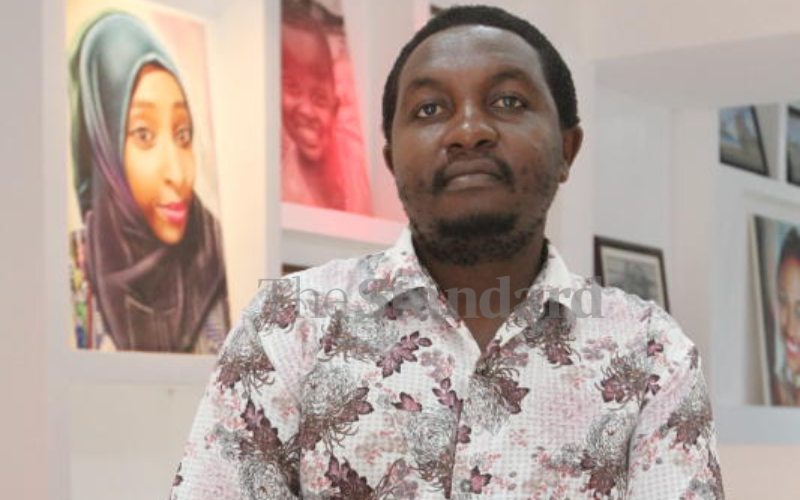×
The Standard e-Paper
Home To Bold Columnists

Frustrated with low and late payment working as a graphic designer at a publishing firm, James Kimathi quit employment in 2014 and set up an art studio in Kasarani.
The 37-year-old painter states that he felt more at home doing art, but at the same time he nursed ambitions of training people who had talent and wanted to refine their craft.